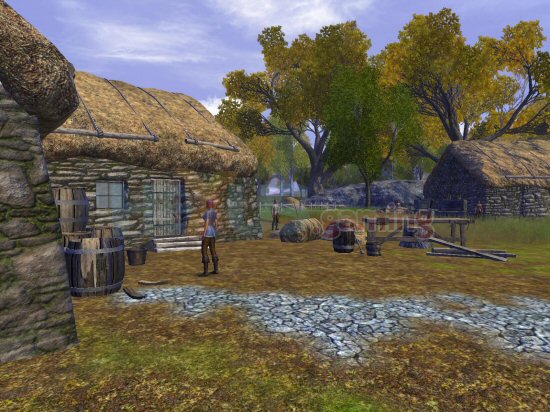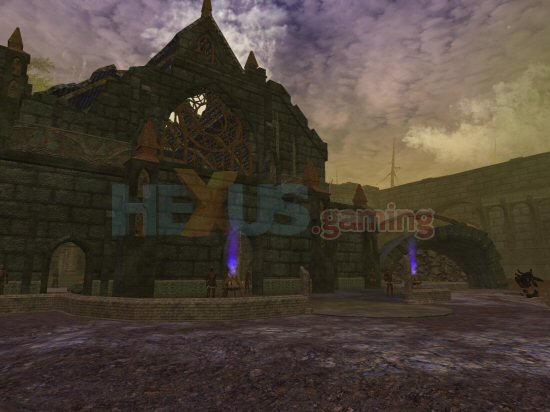Character development through crafting and diplomacy
Crafting
Crafting involves gathering resources through actions such as chopping down trees or mining in the caves. Crafting consists of three stages, refining, finishing and assembly. Each recipe is made up of from a different set of actions that you have place in a particular order to get the required result, allowing you to make items such as armour or weaponry.
Part of the crafting sphere involves constructing houses and then decorating the place with furniture and using it to store weapons or trophies. To get to this point you need to harvest or trade for commodities, such as wood to be able to construct the building. Building houses is obviously going to swell your status amongst the Vanguard masses, but Sigil have warned that housing will be zoned, meaning that you won’t just be able to construct houses wherever you wish. They may also be capping the amount of property you can own. I’ve yet to get to the stage of constructing a house, but should have more details on this in the full review.
 Click for larger image
Click for larger imageDiplomacy
Although diplomacy isn’t a new concept, it is new to MMOs and using it not only raises your diplomacy level but allows you to influence characters within the game through the playing of a card game. Initially, we were bamboozled by dialogue points and the diplomacy gameboard, but after studying the tutorial for the umpteenth time we put it into practice and found it tactically compelling and a nice break from fighting the many creatures that dwell in the caves and mountain sides of Telon.
 Click for larger image
Click for larger imageFrom the set of cards available you need to create a hand (or strategy) before entering into a dialogue with ‘a diplomacy’ (NPC). Each card represents an expression, each of which will fit into one of four categories; demand, reason, inspire and flattery. During each parley (as its known) dialogue is represented through text. There are 5 conversation types ranging from ‘convincing’ to ‘inciting’ your opponent, depending on which strategy you wish to use. The idea is to drag statements (cards) from your hand into the spaces on a strategy table and once you’ve decided on the cards you wish to play the dialogue begins. The gameboard acts as a ‘tug of war’ and a counter moves up and down depending on which cards yourself and the NPC plays. From the cards you have chosen (which can’t be changed during the parley) you need to click on one of the statements to play your card and then the NPC will play a card in response to yours.
Winning these diplomacy battles often means you’ll pick up some loot, diplomatic gear and other rewards (such as receiving titles), but as you progress in diplomacy you’ll be able to persuade kings to move armies and change the course of history.
Describing how to take part in diplomacy is actual far more difficult then putting it into practice. After speaking with three diplomacy contacts I soon got the idea and found myself leaning towards these quests due to the mental challenge that they offer.









